Grad Student Joshua Landis ’22 Caps Big Day with $50,000 Idea Challenge Win
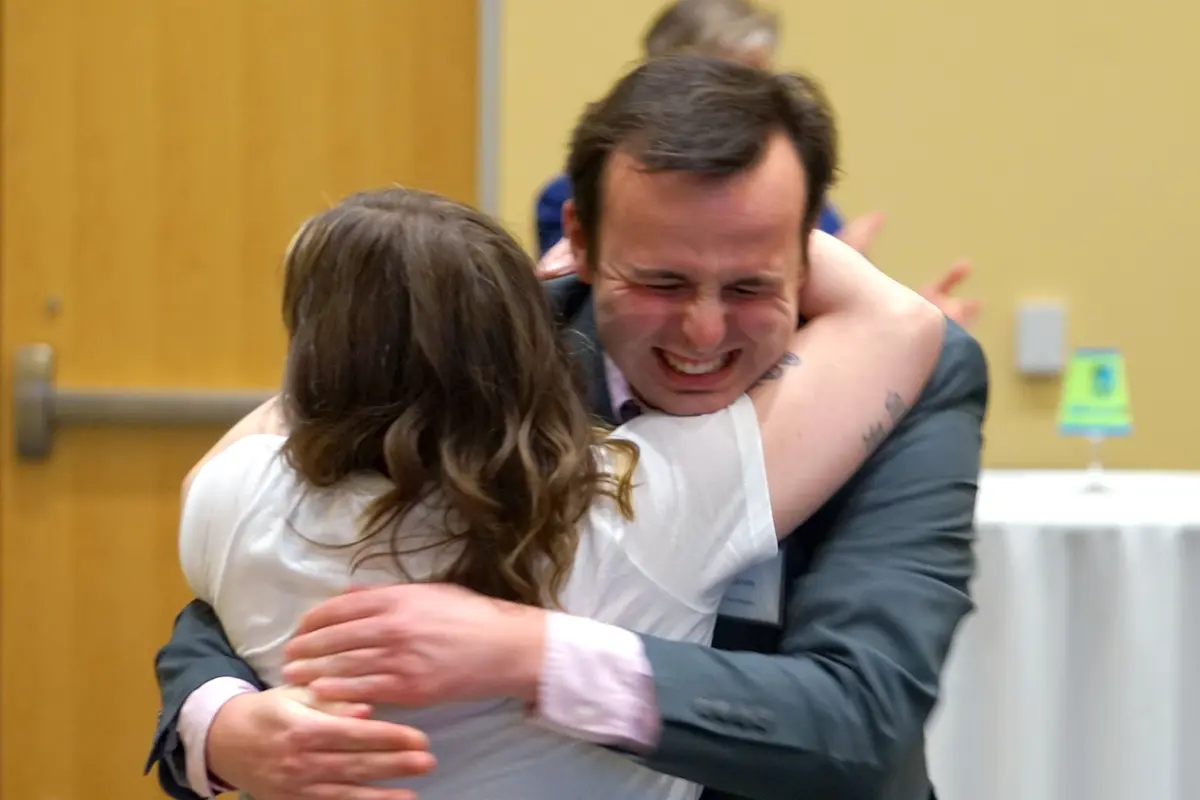 Image by Ed Brennen
Image by Ed Brennen
04/16/2024
By Ed Brennen
Joshua Landis ’22 didn’t have much time to bask in the satisfaction of completing his master’s degree in mechanical engineering.
Just two hours after presenting his graduate thesis, he was making another momentous presentation — this time in the Rist DifferenceMaker Institute’s 12th annual $50,000 Idea Challenge at University Crossing.
A great day got even better for Landis when he won the top prize — the $6,000 Rist Campus-Wide DifferenceMaker award — for SparkCell Technologies, his fast and cost-effective way to detect defects in concrete structures such as bridges and overpasses.
“I’m ecstatic. I can’t wait to start building prototypes with this money,” the Billerica, Massachusetts, native said as he received hugs and high-fives from friends and family.
Ten teams took the Idea Challenge stage to pitch their innovative solutions to a panel of alumni judges: Lorna Boucher ’86, Amy Hoey ’88, Brian Rist ’77, ’22, ’22 (H), Mark Saab ’81 and Bhupen Shah ’92.
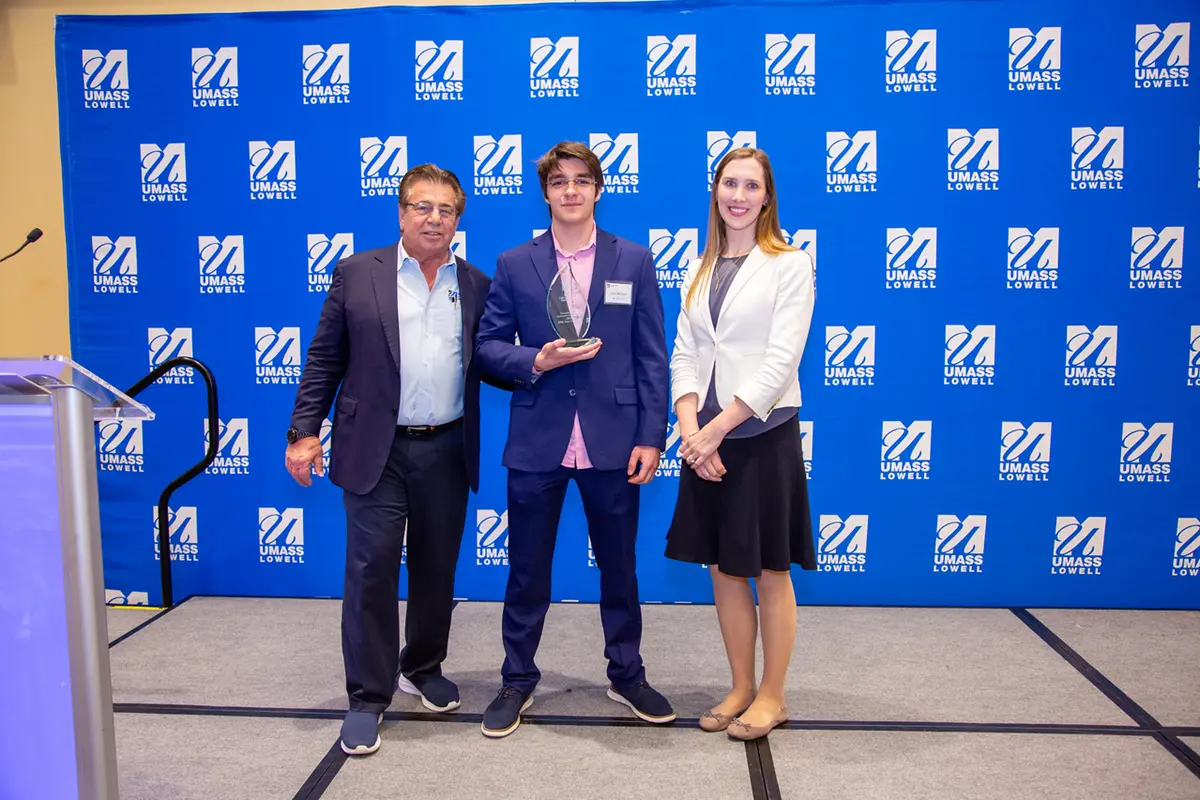 Image by Meg Moore
Image by Meg Moore
“Regardless of whether you end up starting your own company, the experience you have of coming up with an idea, working as a team and communicating that idea is something that will benefit you throughout your career,” Chen said.
First-year computer science major Levon Markosyan won the $4,000 Commitment to a Sustainable Environment award, sponsored by the Rist Institute for Sustainability and Energy, for Next Gen Testing, an affordable device to detect harmful PFAS chemicals in water.
“I knew DifferenceMaker would be well outside of my comfort zone, but that ultimately it would be a valuable experience. I couldn’t be happier with my decision to participate,” the Newton, Massachusetts, resident said.
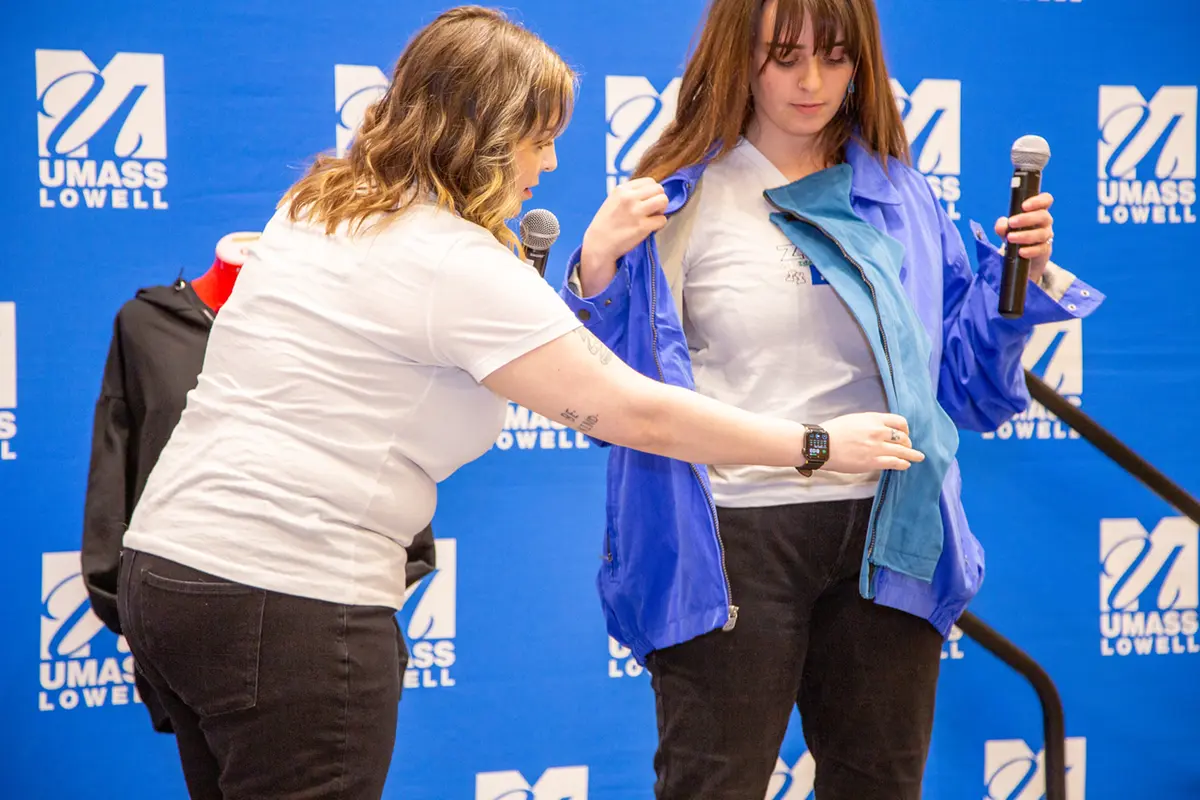 Image by Meg Moore
Image by Meg Moore
Electrical engineering students Daniel Maienza and Joseph Nguyen won the $4,000 Jack Wilson First Product to Market Award for EduX, which uses artificial intelligence (AI) to help high school and college students optimize their course schedules so they graduate on time.
Another AI-based solution, Zenyai, took home the $4,000 Significant Social Impact award, sponsored by Joy Tong Women in Business. The platform uses AI to detect the emotions of nonverbal and autistic children, translating them into sounds that can help them express themselves to others.
Mechanical engineering graduate student Tomi Oladunjoye, who earned a bachelor’s degree in audio engineering from Lawrence University in Appleton, Wisconsin, says he came up with the idea as a way to connect creativity with AI.
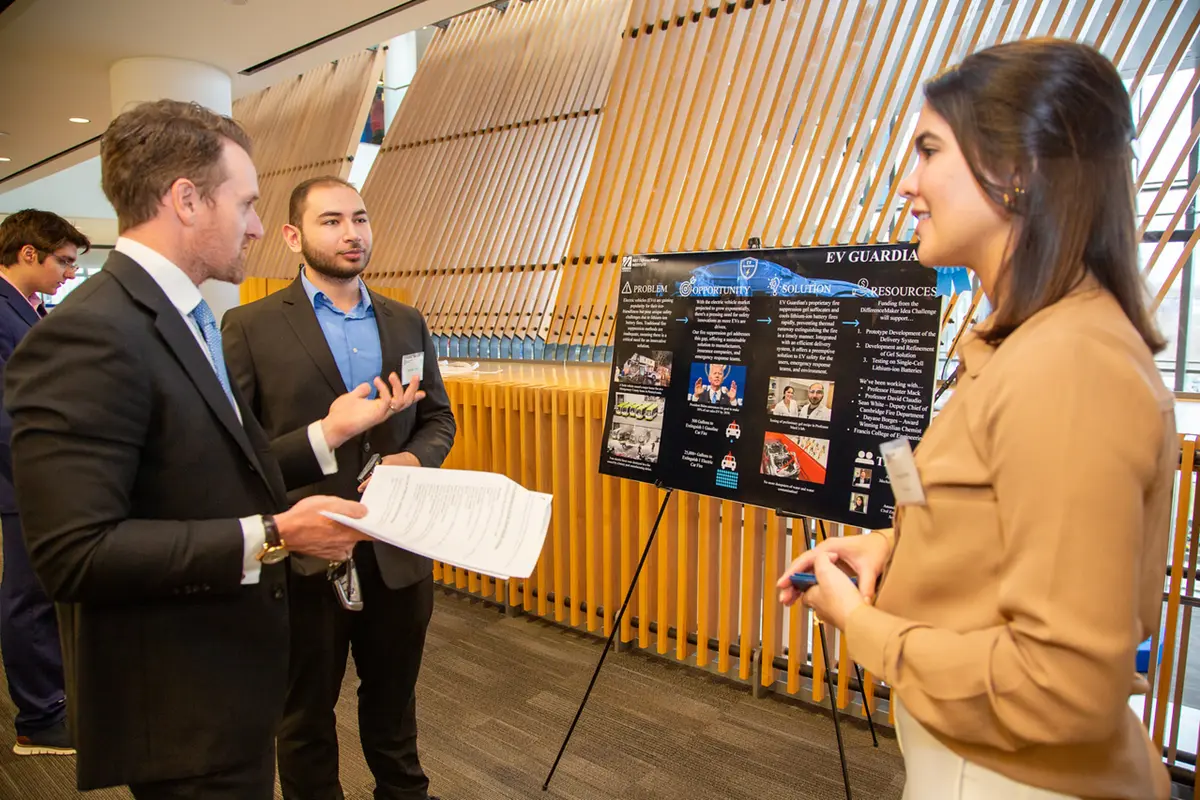 Image by Meg Moore
Image by Meg Moore
“I know how it felt to not be understood, which is why I went into music — as a way to express myself,” said the Boston native, whose interdisciplinary team includes computer science students Daniel Kusmaul, Pratheek Kotamarti and Chakshu Patel and business majors Julia Marino and Michael Reppucci.
Zipper Buddy, which won DifferenceMaker’s Francis College of Engineering Prototyping competition in December, captured the $4,000 Contribution to a Healthier Lifestyle award, sponsored by Enterprise Bank. Seniors Sandi DeRuntz (liberal arts) and Valerie Heath (business) pitched the adaptive device, which allows people with limited mobility to fasten clothing with one hand.
A pair of senior engineering majors, Abdullah Jasim (mechanical) and Amanda Mello (civil), won the $4,000 Andrew Sutherland ’94 Innovative Technology Solutions award for EV Guardian, a delivery system for a fire-extinguishing gel that is built into an electric vehicle’s lithium-ion battery. EV fires can take several hours and up to 30,000 gallons of water to extinguish, they explained.
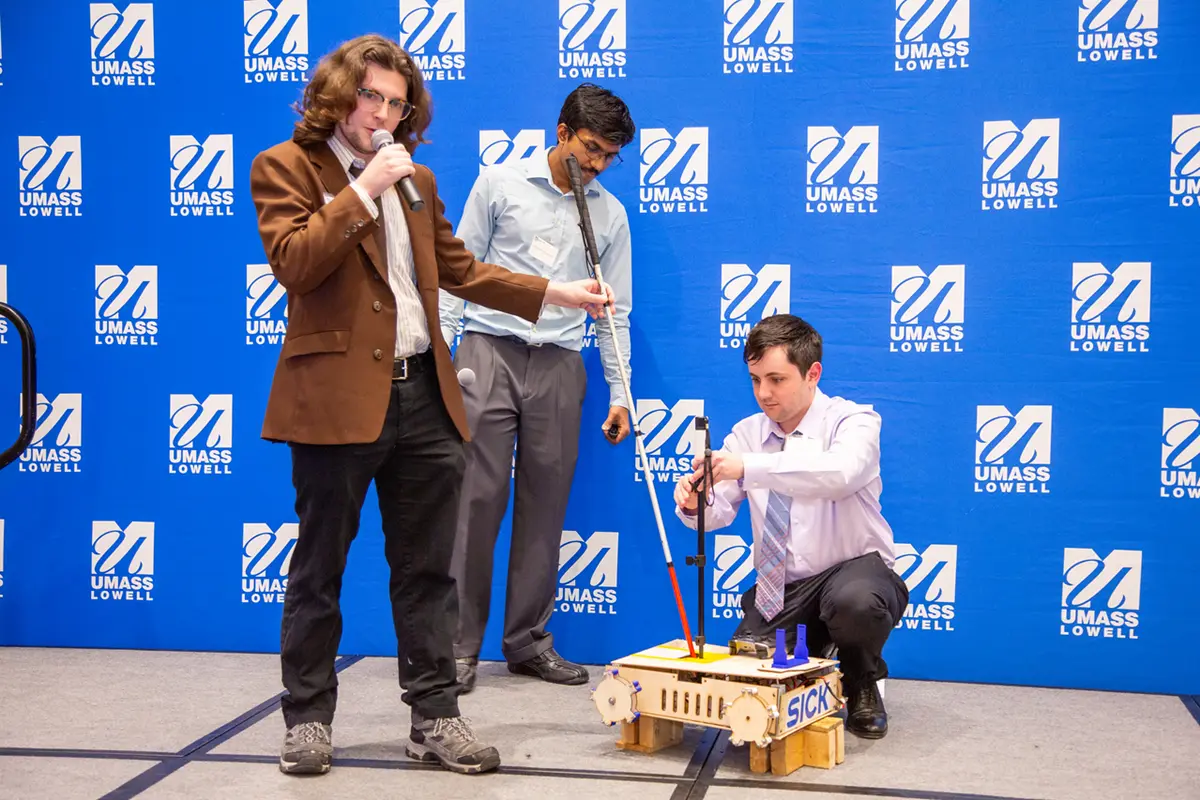 Image by Meg Moore
Image by Meg Moore
Wanting to compete in DifferenceMaker, Jasim and Mello went door to door in the College of Engineering, asking faculty about the biggest problems they’ve faced in their fields. Asst. Teaching Prof. Kari White told them her husband is the fire chief in Cambridge, Massachusetts, and has “nightmares” about EV fires.
“That’s when we knew this is an issue we should probably solve,” said Mello, who is from Framingham, Massachusetts.
Four teams received $2,000 honorable mention awards:
- Bean Hub, which automates order-taking for coffee chains (Aiman Baig, Anirban Dasgupta, Ibrahim Haroon, Emir Kaplan, Mohammad Khan and Shafaat Osmani);
- RAVI, a robot to help the visually impaired (Jacob Breen, Matthew Jarek, Daniel Kusmaul, Trevor Landurand, Ian McLeod and Alexander Nunes);
- Sober Solutions, an app to modernize the addiction recovery process (John Carozza and Zachary Richard); and
- Socket Tech Solutions, a smart home device that improves security and privacy (Hayden Dolan, Tyler Fanuele, Coleman Nee, Caleb Oakley, Sarah O’Meara, James O’Sullivan, Nishanth Potturu, Devansh Sethia, Justin Tarnowski and MyKim Trinh).
This year, more than 50 teams entered DifferenceMaker, a campus-wide program that engages UMass Lowell students in creative problem-solving, innovation and entrepreneurship. Twenty-four of those teams took part in the Preliminary Pitch Off on April 3 at O’Leary Library, where the 10 finalists were chosen by a panel of 20 alumni judges.
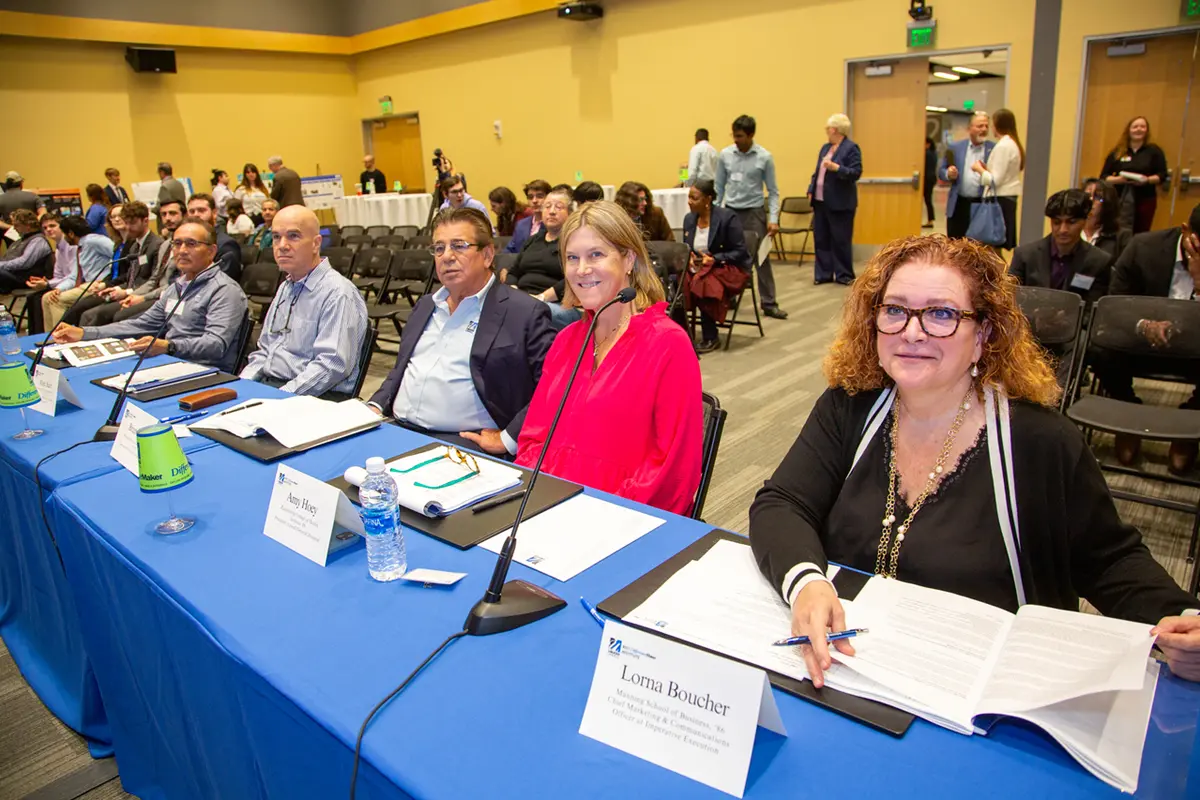 Image by Meg Moore
Image by Meg Moore
The $1,000 Fan Favorite award, which was open to teams that didn’t make the finals, went to TurtleTours, a service robot designed to improve the hospitality industry. The team includes graduate students Myron Chee, Nathan Uhunsere, Michael Fisher, Vulindsky Fanfan and Landurand.
Rist, who along with his wife Kim ’22 (H) has been a longtime DifferenceMaker supporter, said his family is “proud” to have their name associated with the program.
“It’s so exciting to come here each year and watch the teams grow,” he said. “It becomes more difficult every year to decide who the winners are.”
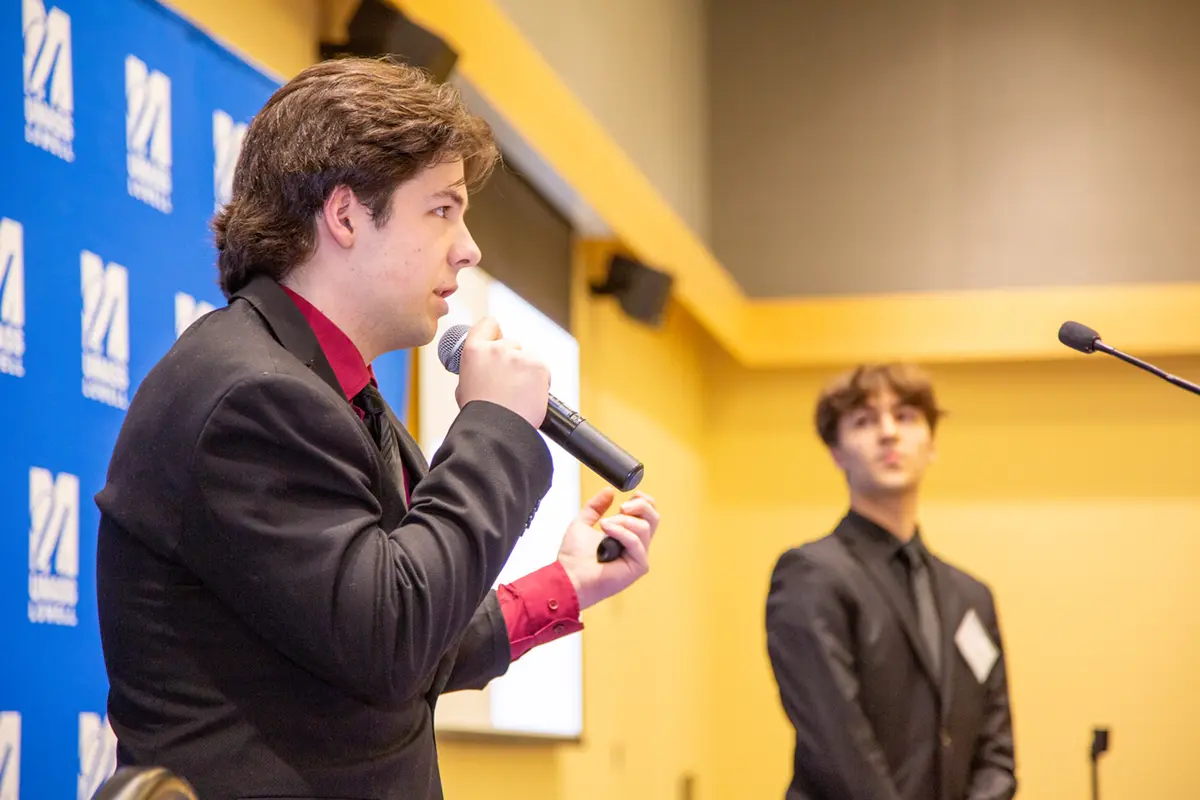 Image by Meg Moore
Image by Meg Moore
“This year’s pitch teams did the best job I’ve ever seen. The diversity of the products and offerings was incredible,” said Hoey, who has been involved with the program since its inception.
All of the finalists now have the opportunity to continue honing their ideas at the DifferenceMaker Summer Boot Camp. The winning teams, meanwhile, have access to $15,000 of in-kind legal services, provided by corporate sponsor Foley & Lardner LLP, where engineering alum Chris McKenna ’89 is office managing partner.
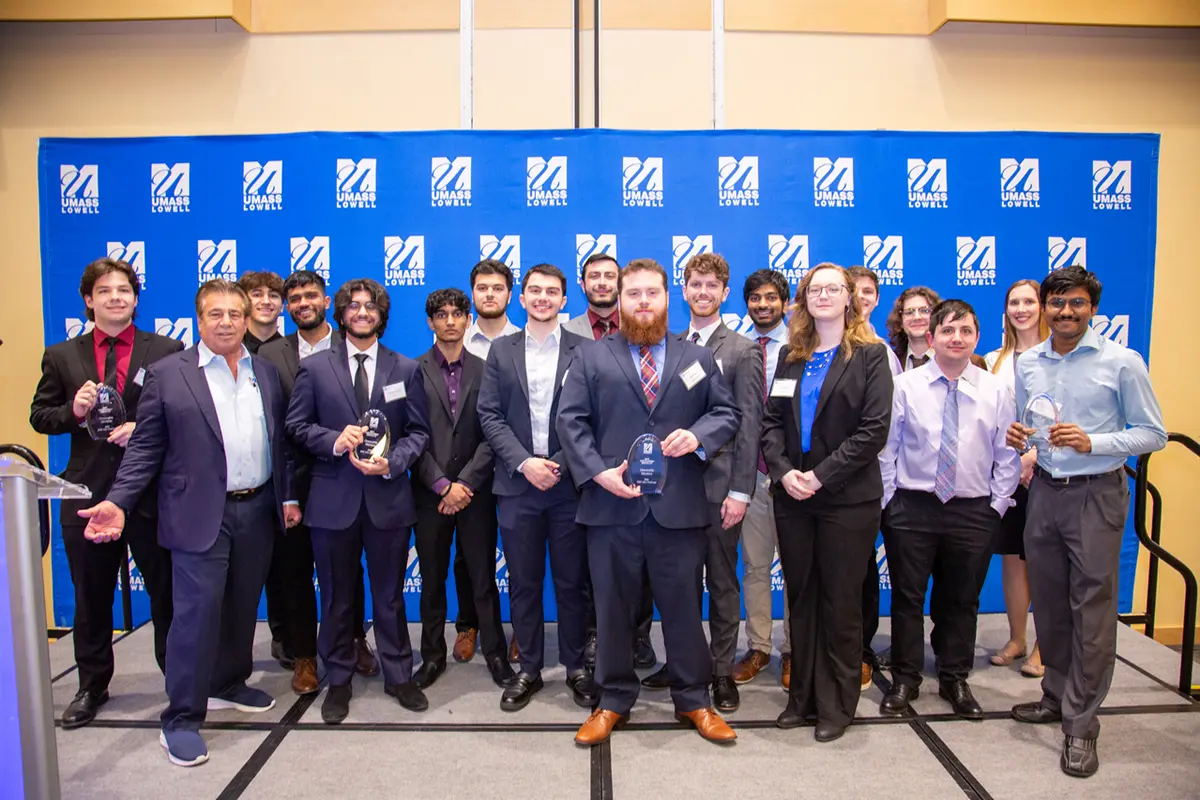 Image by Meg Moore
Image by Meg Moore
Landis wowed the judges with his handheld SparkCell device, which uses spark emission spectroscopy to detect chloride contamination in concrete, which can lead to structural collapse. Thanks to the Biden Administration’s Bipartisan Infrastructure Law, which will invest $1 trillion in roads, bridges and other projects, Landis noted that the concrete testing industry is expected to grow from $200 million to $1.18 billion by 2028.
Landis admitted that he was “so excited about this project” that it was a challenge to focus on his graduate thesis on creating spectral characterization methods for greenhouse gases in alternate combustion mixtures.
He still managed to pull off the daily double, though.
“This is a pretty good day for me, I’ve got to say,” he said.
